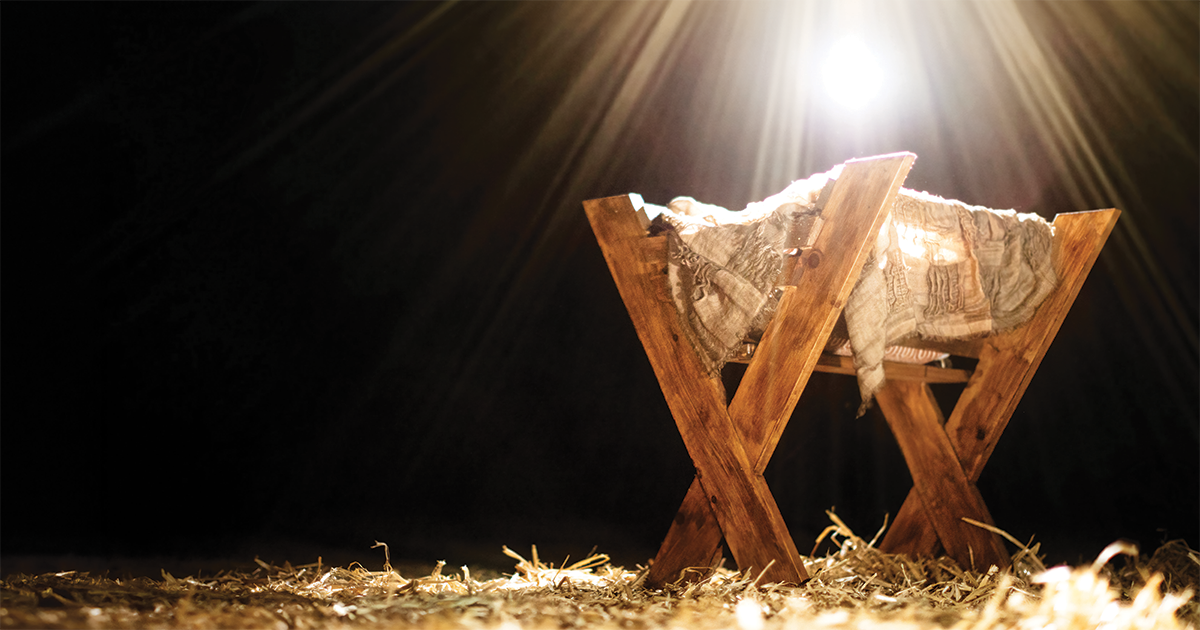When I was in university, someone asked if I considered myself a feminist. The question stunned me. I had never really thought about it. The label didn't quite fit; somehow it felt frumpy and constricting. I don't remember how I answered the question then, but I know how I answer it now.
I am a feminist.
This statement often elicits more questions, usually along the lines of, Are you bitter? Are you angry? Do you hate men? These questions push at the edges of why I am a feminist.
I am a feminist because I believe that women are people. At the core, feminism simply means that the dignity, rights and responsibilities of women are equal in importance to those of men, and we refuse discrimination.
That's it.
I am a feminist because I love Jesus Christ, and he championed the dignity of women. One of my favourite examples is the role that women play in the resurrection narrative. The first witnesses of the Resurrection were women. The first people to preach the good news of the Resurrection were women. Jesus sent a woman to tell the disciples the good news: he is risen. I think that Jesus was a feminist, too.
I am a feminist because it is 2016, and some people still try to explain away my gifts and calling. At a lunch meeting for ministers in my city, I am the only woman in the room. My husband still hears whispers about whether a woman has a place in the pulpit, a place at this table. My gifts and passion are openly debated, because they are not enough. As if my worth and dignity were not determined the day I was created in the image of God.
In Bible studies and conferences, I have been smothered nearly to death by proof texts that make me feel as if I have it all wrong. As if I'm wrong about my calling. As if I'm wrong about God's movement in my life. This is one of the many reasons why I am a feminist. I believe that God is on the move, and I want to move with our God.
I am done wasting my time with debates about what women should and should not do. I am done because I know warrior women who are creative, who are leaders in their churches, who God has gifted for ministry. Women who are called by the Holy God. And I am not about to get in the way of God's anointing.
I am done because I have already seen the life-giving answer to the question of women in leadership in my friends, colleagues and the women who have gone before me.
This movement of God has scriptural, traditional, experiential and spiritual justification. Our big and awe-inspiring God is on the move. He is at work in this, his world, and we have been invited to come along. We have been invited to participate with all that we are and all that we have, leaving everything on the altar.
Carolyn Custis James, author of Half the Church: Recapturing God's Global Vision for Women, writes, “When half the church holds back—whether by choice or because we have no choice—everybody loses and our mission suffers setbacks.”
For the sake of the gospel, women must speak, teach, pastor and prophesy. For the sake of God's kingdom, we must demonstrate the already and not-yet redemptive movement of God. So that the church can surprise, amaze and intrigue the world. So that the church can offer a foretaste of what it means to be made in the image of God, intended for wholeness within the body of Christ.
Then we can each say, I am a feminist—not because it is 2016, but because this, my friends, is Jesus, and this is what the kingdom of God looks like. Filled with men and women who are living out their gifts and callings, announcing that Jesus is resurrected, death has been defeated and God is on the move.
Lieutenant Kristen Jackson-Dockeray is the corps officer at Niagara Orchard Community Church, Ont.
I am a feminist.
This statement often elicits more questions, usually along the lines of, Are you bitter? Are you angry? Do you hate men? These questions push at the edges of why I am a feminist.
I am a feminist because I believe that women are people. At the core, feminism simply means that the dignity, rights and responsibilities of women are equal in importance to those of men, and we refuse discrimination.
That's it.
I am a feminist because I love Jesus Christ, and he championed the dignity of women. One of my favourite examples is the role that women play in the resurrection narrative. The first witnesses of the Resurrection were women. The first people to preach the good news of the Resurrection were women. Jesus sent a woman to tell the disciples the good news: he is risen. I think that Jesus was a feminist, too.
I am a feminist because it is 2016, and some people still try to explain away my gifts and calling. At a lunch meeting for ministers in my city, I am the only woman in the room. My husband still hears whispers about whether a woman has a place in the pulpit, a place at this table. My gifts and passion are openly debated, because they are not enough. As if my worth and dignity were not determined the day I was created in the image of God.
For the sake of the gospel, women must speak, teach, pastor and prophesy
In Bible studies and conferences, I have been smothered nearly to death by proof texts that make me feel as if I have it all wrong. As if I'm wrong about my calling. As if I'm wrong about God's movement in my life. This is one of the many reasons why I am a feminist. I believe that God is on the move, and I want to move with our God.
I am done wasting my time with debates about what women should and should not do. I am done because I know warrior women who are creative, who are leaders in their churches, who God has gifted for ministry. Women who are called by the Holy God. And I am not about to get in the way of God's anointing.
I am done because I have already seen the life-giving answer to the question of women in leadership in my friends, colleagues and the women who have gone before me.
This movement of God has scriptural, traditional, experiential and spiritual justification. Our big and awe-inspiring God is on the move. He is at work in this, his world, and we have been invited to come along. We have been invited to participate with all that we are and all that we have, leaving everything on the altar.
Carolyn Custis James, author of Half the Church: Recapturing God's Global Vision for Women, writes, “When half the church holds back—whether by choice or because we have no choice—everybody loses and our mission suffers setbacks.”
For the sake of the gospel, women must speak, teach, pastor and prophesy. For the sake of God's kingdom, we must demonstrate the already and not-yet redemptive movement of God. So that the church can surprise, amaze and intrigue the world. So that the church can offer a foretaste of what it means to be made in the image of God, intended for wholeness within the body of Christ.
Then we can each say, I am a feminist—not because it is 2016, but because this, my friends, is Jesus, and this is what the kingdom of God looks like. Filled with men and women who are living out their gifts and callings, announcing that Jesus is resurrected, death has been defeated and God is on the move.
Lieutenant Kristen Jackson-Dockeray is the corps officer at Niagara Orchard Community Church, Ont.










Leave a Comment